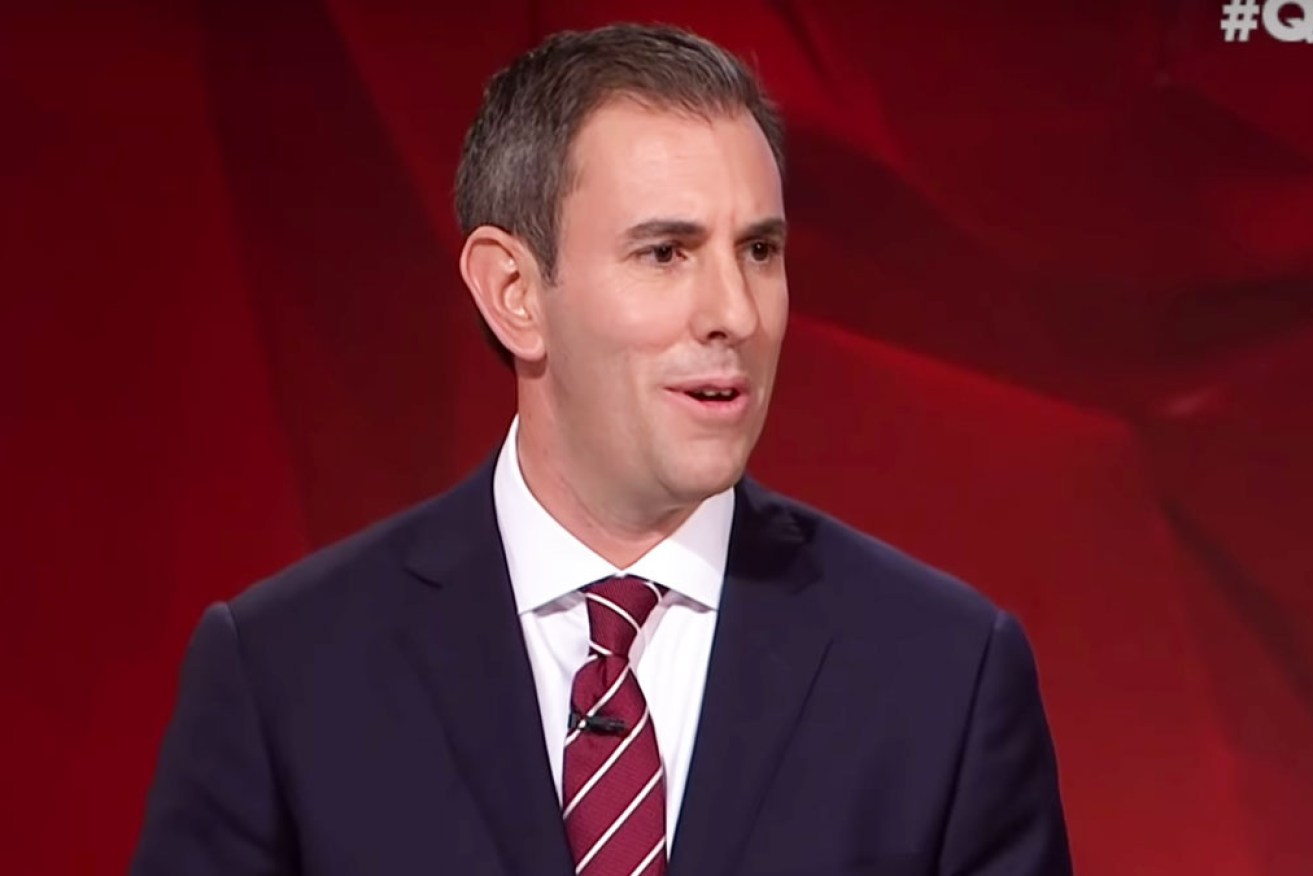Labor ‘petrified’ of long-term unemployment


• Shadow treasurer Jim Chalmers is concerned the COVID-19 crisis will result in long-term unemployment for some. Photo: ABC
Shadow treasurer Jim Chalmers is “petrified” the economic downturn caused by the coronavirus pandemic will result in some workers being lost to long-term unemployment.
Figures this week showed nearly 600,000 people lost their job in April as restrictions took hold to try and shield Australians from the worst of the COVID-19 crisis.
This was the largest one-month fall on record, and was combined with a spike in the unemployment rate to a five-year high of 6.2 per cent.
The Australian Treasury expects the jobless rate to peak at 10 per cent in the coming months.
“The thing that petrifies me … people who become disconnected from the labour market in recessions, some of those people never come back,” Dr Chalmers told a Guardian Australia podcast on Saturday.
“Whether it’s older workers or you might lose a generation of younger workers, that is an absolute tragedy which needs to be avoided at all costs.”
He said that is why Labor supports a “big fiscal intervention” even if that means more government debt in the near term.
“If you’ve never lost your job, there’s no real way to understand the anxiety or the emptiness in the pit of people’s stomachs, the things they’re going through right now,” Labor frontbencher Jason Clare told the ABC.
“It affects the mental health of so many Australians. We can all agree there’s a hell of a lot more that we need to do. And there’s more pain on the way.”
BREAKING: Unemployment has just hit 6.2%
And it could get worse. Lots of tradies could join the dole queue in the next few months. We need a plan to stop this happening. pic.twitter.com/0JmcScY6qc
— Jason Clare MP (@JasonClareMP) May 14, 2020
The Morrison government has spent some $320 billion in support measures during the the crisis, including a $130 billion JobKeeper package and a doubling of he JobSeeker dole payment – formerly know as Newstart.
The government is due to review these programs in June.
While this has raised speculation such programs could be scaled back before they are due to end in September, Prime Minister Scott Morrison has repeatedly insisted that it is too early to make that assumption.
“We want to make sure that we help everyone in the community, especially those people who may never have lost a job before, through this very difficult period,” Liberal backbencher Jason Falinski told ABC television.
Mr Falinski said the best way to help people is to get them back to work.
“The best way to create jobs is to get the economy open,” he said.
“It’s going to be a long journey out, but a journey of a thousand miles begins with one step. And the sooner we take that step, the sooner the journey is over.”
Restrictions ease in New South Wales today!
However, we must remain vigilant or we will risk returning to severe lockdown restrictions. 🔐
Please continue to practise good hygiene and social distancing where possible. 🧼 🖐
Enjoy your weekend!#Forthebeaches #followfalinski pic.twitter.com/BgaP1PW9A6
— Jason Falinski MP (@JasonFalinskiMP) May 15, 2020
The jump in the unemployment rate from 5.2 per cent was smaller than economists had been expecting, but was partially seen as a result of a large number of people leaving the labour market altogether.
This caused a drop in the participation rate, which measures both people in work and those actively seeking employment.
AMP Capital chief economist Shane Oliver believes without the fall in the participation rate, the jobless rate would have been 9.6 per cent.
“We still see unemployment rising from here, but the April report gives us more confidence that it won’t get above 10 per cent,” Dr Oliver said in a note to clients.
“In fact, it may not get much above eight per cent given that the big hit to the economy and jobs was in April.”
But he said the main risk to the outlook is if the economy hasn’t recovered much by September and JobKeeper and enhanced JobSeeker schemes end and sees more workers defining themselves as unemployed.
-with AAP








